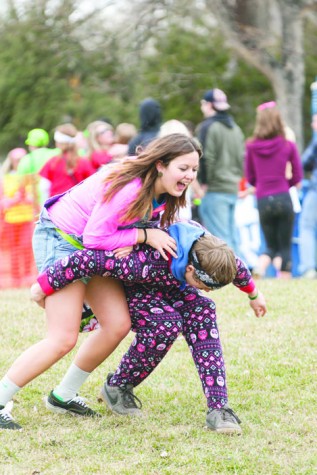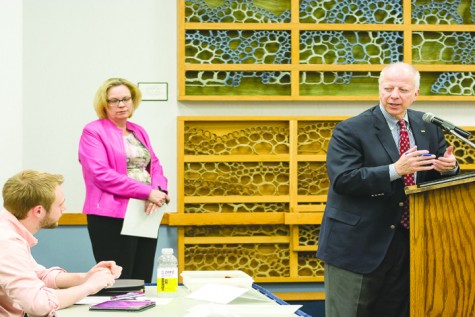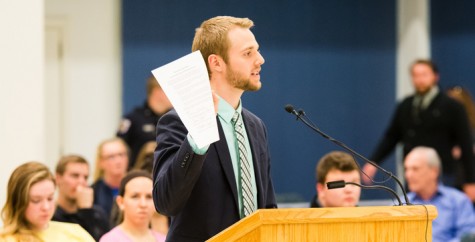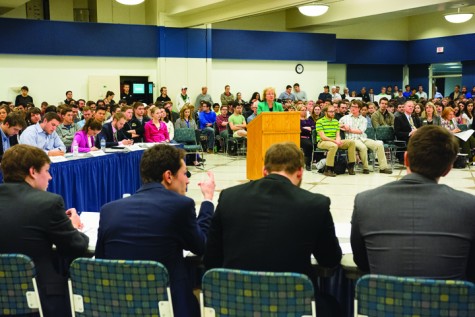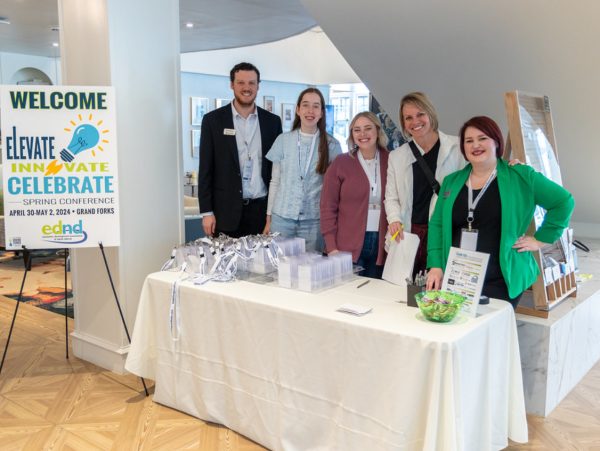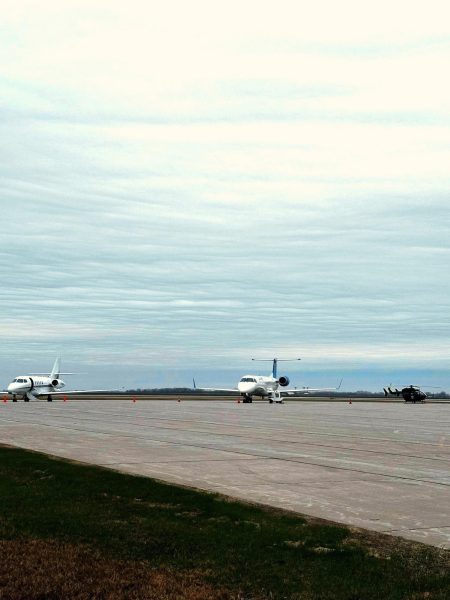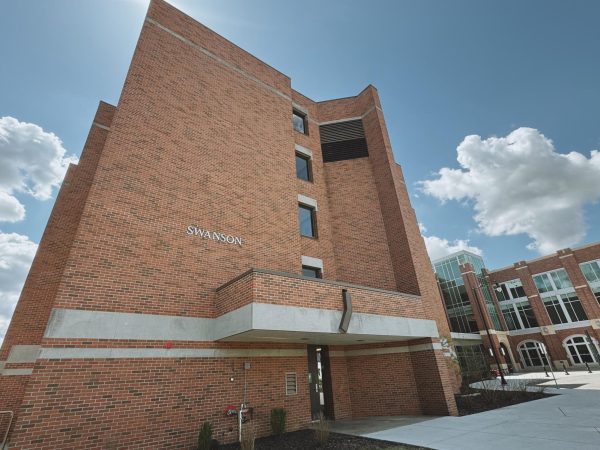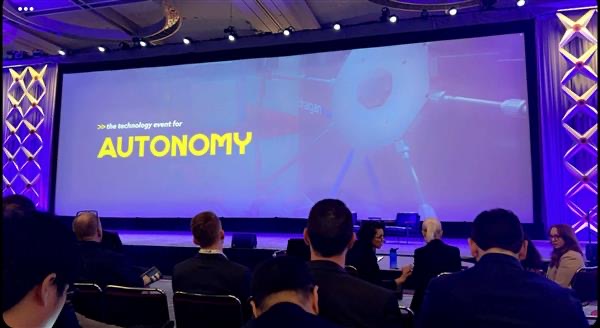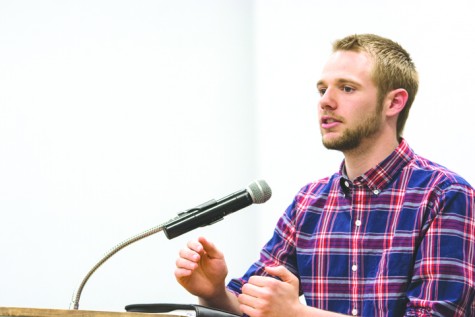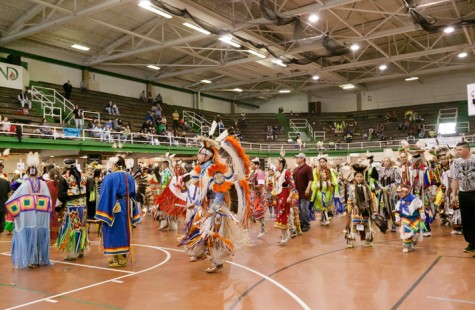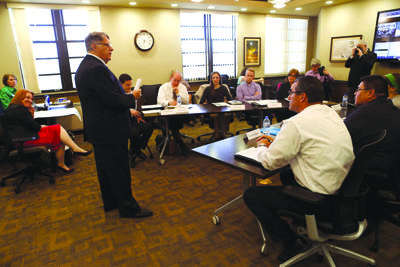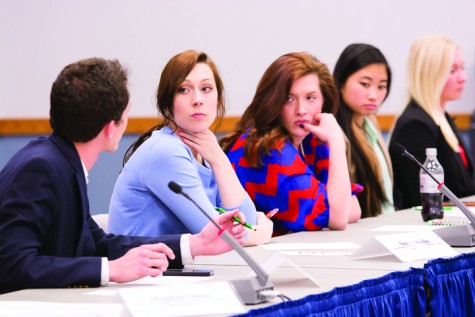Local panel discusses Paris magazine attacks
Moderator Brian Urlacher and panelists Caroline Campbell, Mike Jacobs and Mosab Bajaber (from left to right) lead a discussion with community members during an event focused on issues surrounding free speech, religion and human rights Thursday evening in the Grand Forks Herald building. Photo by Maggie O’Leary/The Dakota Student.
The Jan. 7 terrorist attacks on a magazine in Paris left the world shocked and asking what constitutes free speech in countries around the world.
The events led to a panel held on Jan. 29 at the Grand Forks Herald building to discuss human rights, free speech and religion.
Grand Forks community members Mike Jacobs, Caroline Campbell and Mosab Bajaber made up the panel, which was moderated by Brian Urlacher.
Each panelist had a chance to speak about their thoughts on the attacks and freedom of speech, followed by questions and comments from the audience.
Campbell, a history professor at UND, gave some facts about the attacks and talked about the history of France, free speech and Charlie Hebdo, the magazine that was attacked.
“Satirical cartoons are strong in France, and there are famous cases from the French Revolution,” Campbell said. “They used power of speech to discredit the police and elites. But, the ideas can be twisted. Charlie Hebdo, in the mid-2000s used them to ridicule Islam, Muhammad and Muslims. They were racist, and they mocked the powerless and oppressed.”
Campbell also talked about French secularism, where the state is responsible to protect individuals from religion. That led to a law banning religious symbols in public schools.
“Charlie Hebdo ridiculed women,” Campbell said. “If human rights are going to mean something, we need to reject the idea of clash of civilizations and combat more subtle discriminations.”
Jacobs, former editor and publisher of the Grand Forks Herald, was the next to talk. He began by stating he is a free speech absolutist.
“Without freedom of speech, you have no basis for civilization,” Jacobs said. “Without freedom of speech you are not able to make arguments, intelligent or not. It builds a society that responds to our wishes, but is vastly more complicated than that. Each religion has their own focus on history and how things came to be. We can’t allow ourselves to get into a place where religious assertions are unchallengeable.”
Bajaber is a doctoral candidate at UND and former board member of the Grand Forks Islamic Center. He began by talking about how sacred life is to Muslims, and how they are against force and coercion. He also spoke about why Muslims were upset with Charlie Hebdo.
“The depiction of the Prophet is blasphemy,” Bajaber said. “But that’s not the issue, it’s the tip of the iceberg in a long history and adds insult to injury. But the West is not one thing, Westerners are all different. The issue of free speech is purely a Western one, and even in the West free speech is not absolute, especially not in France.”
Bajaber ended by asking if Muslims should apologize for the attacks.
“One should not have to apologize for a crime he or she did not do,” Bajaber said.
Urlacher made several comments of his own to highlight the main points made by all three speakers before the floor was opened to the audience.
“The Charlie Hebdo cartoons, the heart of the whole massacre were perhaps in poor taste,” Urlacher said. “They were punching down. But free speech has different complexities in different cultures.”
Megan Hoffman is a staff writer for The Dakota Student. She can be reached at [email protected].



